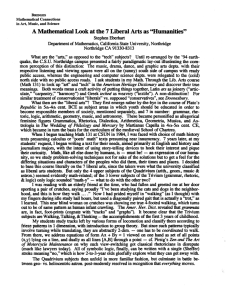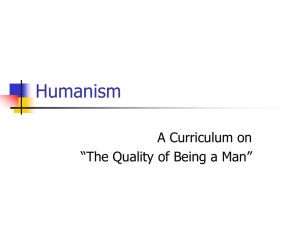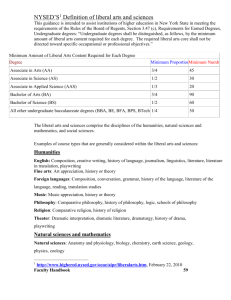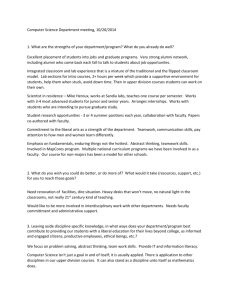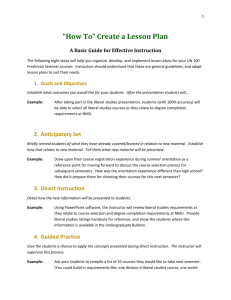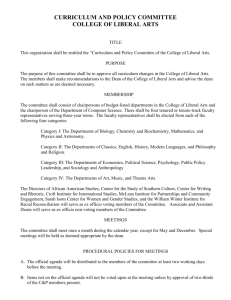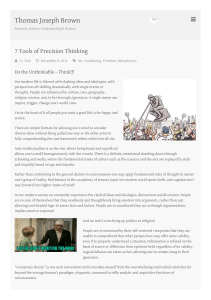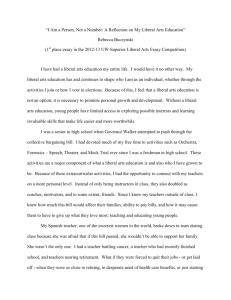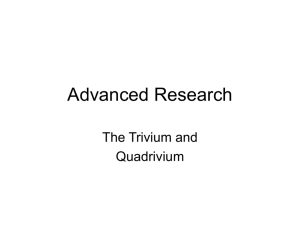A Liberal Education?
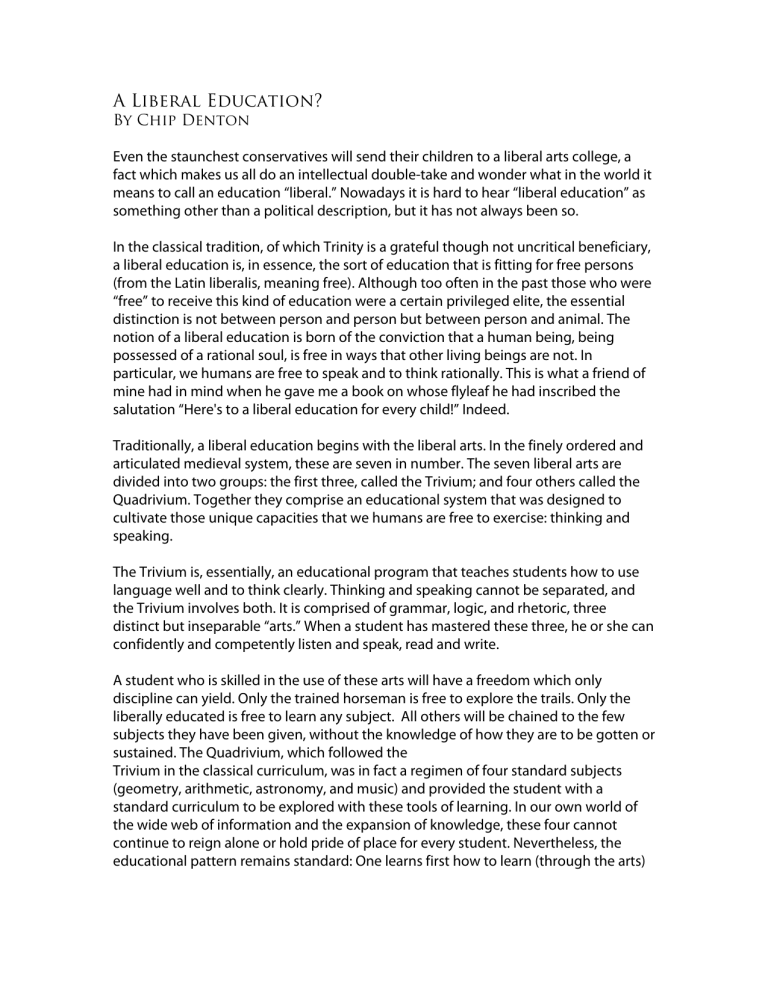
A Liberal Education?
By Chip Denton
Even the staunchest conservatives will send their children to a liberal arts college, a fact which makes us all do an intellectual double-take and wonder what in the world it means to call an education “liberal.” Nowadays it is hard to hear “liberal education” as something other than a political description, but it has not always been so.
In the classical tradition, of which Trinity is a grateful though not uncritical beneficiary, a liberal education is, in essence, the sort of education that is fitting for free persons
(from the Latin liberalis, meaning free). Although too often in the past those who were
“free” to receive this kind of education were a certain privileged elite, the essential distinction is not between person and person but between person and animal. The notion of a liberal education is born of the conviction that a human being, being possessed of a rational soul, is free in ways that other living beings are not. In particular, we humans are free to speak and to think rationally. This is what a friend of mine had in mind when he gave me a book on whose flyleaf he had inscribed the salutation “Here's to a liberal education for every child!” Indeed.
Traditionally, a liberal education begins with the liberal arts. In the finely ordered and articulated medieval system, these are seven in number. The seven liberal arts are divided into two groups: the first three, called the Trivium; and four others called the
Quadrivium. Together they comprise an educational system that was designed to cultivate those unique capacities that we humans are free to exercise: thinking and speaking.
The Trivium is, essentially, an educational program that teaches students how to use language well and to think clearly. Thinking and speaking cannot be separated, and the Trivium involves both. It is comprised of grammar, logic, and rhetoric, three distinct but inseparable “arts.” When a student has mastered these three, he or she can confidently and competently listen and speak, read and write.
A student who is skilled in the use of these arts will have a freedom which only discipline can yield. Only the trained horseman is free to explore the trails. Only the liberally educated is free to learn any subject. All others will be chained to the few subjects they have been given, without the knowledge of how they are to be gotten or sustained. The Quadrivium, which followed the
Trivium in the classical curriculum, was in fact a regimen of four standard subjects
(geometry, arithmetic, astronomy, and music) and provided the student with a standard curriculum to be explored with these tools of learning. In our own world of the wide web of information and the expansion of knowledge, these four cannot continue to reign alone or hold pride of place for every student. Nevertheless, the educational pattern remains standard: One learns first how to learn (through the arts)
and then one proceeds to pursue learning various subjects, going as deep into the field as one's calling, interests, and ability allow.
Our goal at Trinity is to equip our modern students with these very same tools of learning. Grammar, logic, and rhetoric are not outmoded parts of a medieval syllabus, but the very arts which anyone must master who will be free to speak and think and go on learning as only human beings can. Mastery of these arts is much more important than the collection of various “subjects” in our students' heads. Subjects enough they will get along the way of their lives, but our goal is to give them the tools that are adaptable to any task they will face in this changing world. To this end we
work, and we thank you for your partnership.
